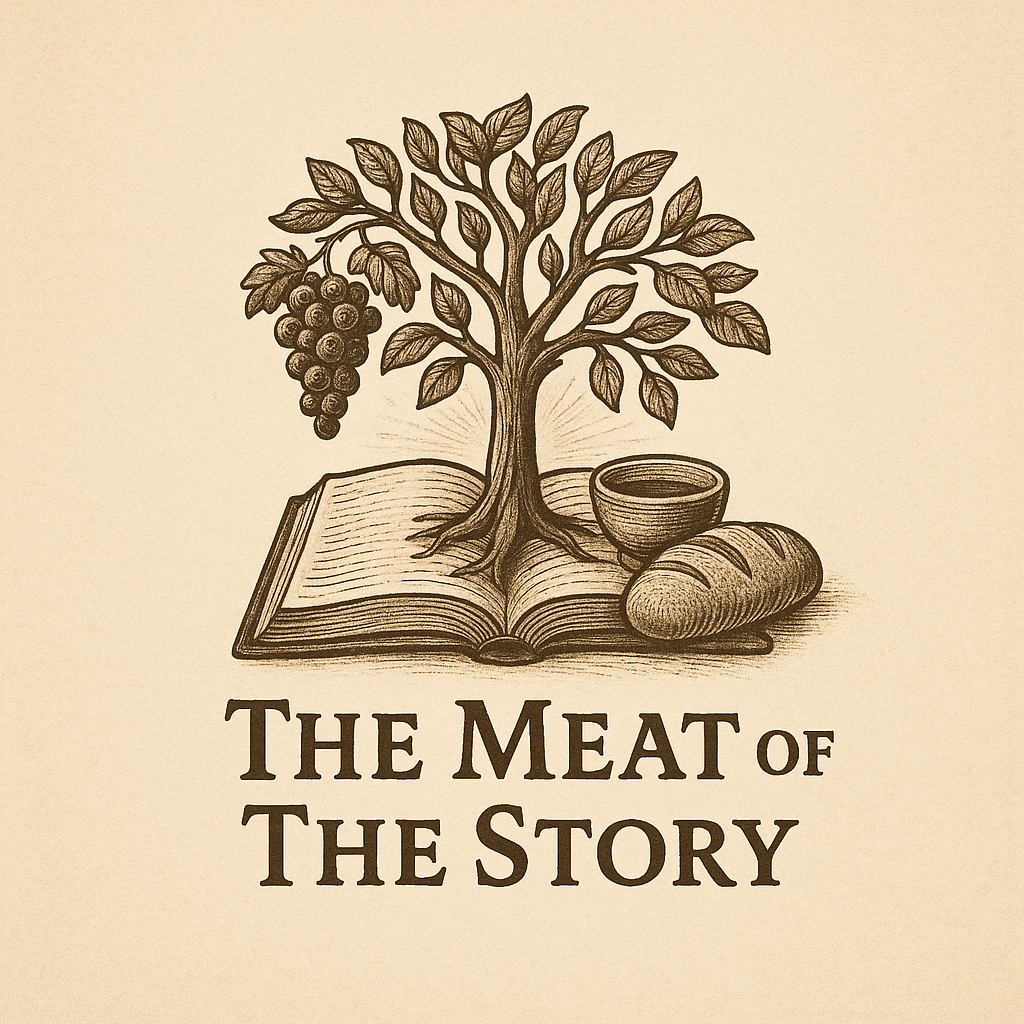
You know how we often celebrate people who can do a little bit of everything? They’re like the jack-of-all-trades, master of none. But, let’s be real, being a master of one thing is often way more impressive than just being good at a bunch of things. Think about it, when you’re really good at something, you can make a real impact. You can make a difference.
I know what you’re thinking, God gives you these skills, and you say, “But God, I don’t want to be limited to just one thing.” And I get it, having multiple skills can be super helpful. But here’s the thing, when you’re trying to be good at everything, you’re not really good at anything. You’re just okay at a lot of little things. And okay is just okay. It’s not amazing, it’s not life-changing.
Let me share a story with you that illustrates this point. Have you heard the parable of the talents? It’s in Matthew 25:14-30. Essentially, a master gives his servants different amounts of money (called talents) and tells them to invest it while he’s away. The servants who invest their talents wisely are praised when the master returns, while the one who buried his talent out of fear is kind of… well, let’s just say it doesn’t end well for him.
The point is, instead of hiding our talents (or skills) in the ground, we should be cultivating and developing them. When we strive for mastery, we can offer so much more to our communities and ourselves. And that’s what God wants for us; to use our unique gifts and abilities to make a difference.
The book of Proverbs is full of wisdom on this topic. Proverbs 22:29 says, “Do you see someone skilled in their work? They will stand before kings; they will not serve before officials of low rank.” That’s some serious recognition right there! When we’re good at something, people notice. And when we’re really good at something, we can have a major impact.
But here’s the thing: mastery doesn’t come overnight. It takes time, effort, and dedication. It means committing to your craft, even when it gets tough. It means being willing to learn from your mistakes and keep pushing forward. And it means being patient and persistent, even when you don’t see immediate results.
Now, let me share a couple of real-life examples with you. Thomas Edison is a great example of someone who focused on mastery. He didn’t try to invent everything; he dedicated himself to specific innovations like the phonograph and electric light bulb. And look what he achieved! He changed the world!
And then there’s Serena Williams, an incredible tennis player who committed herself to mastering her craft from a young age. She’s not only won numerous championships but has also inspired countless people around the world.
How do we balance breadth and depth? Well, Scripture actually acknowledges that some level of versatility can be beneficial. In 1 Corinthians 12:12-27, it talks about the body of Christ and how each member has unique gifts. Each part has a role, and the whole body flourishes when each member contributes. Being a jack-of-all-trades can have its merits when those skills lead to meaningful contributions. But let’s not forget that mastery is where the real impact happens. When we strive for mastery, we can make a real difference in our lives and in the lives of those around us.
~~~~~~~~~~~~~~~~~~~~~~~~~~~~~~~~~~~
Another rewrite: 9/20/24
The phrase “jack of all trades, master of none” describes a person who can do many things but isn’t really skilled at any one thing. While being versatile can be useful, this idea encourages us to think deeply about mastery, purpose, and what it means to truly excel in something, all from a biblical perspective.
In life, many people feel the need to learn various skills and gain knowledge. Ecclesiastes 7:18 says, “It is good to grasp the one and not let go of the other. Whoever fears God will avoid all extremes.” This verse teaches us to balance our efforts by exploring different skills without losing focus. Spreading oneself too thin can lead to frustration and confusion, making it hard to know what one’s true purpose is.
The Bible presents various examples of people who were skilled in many areas but excelled in specific callings. Take King Solomon, for example. He was wise, wealthy, and known for building impressive structures. In 1 Kings 3:5-14, Solomon asked God for wisdom to lead his people instead of asking for riches or a long life. Because he focused on his strengths, he became a master at leading and guiding Israel. Solomon’s success came from understanding his unique role and sticking to it, rather than trying to be everything at once.
The Parable of the Talents in Matthew 25:14-30 tells a similar story. A master gives his servants different amounts of money, called talents, according to their abilities. The servants who used their talents wisely were rewarded, but the one who buried his talent out of fear faced criticism. This parable reminds readers that while everyone has different skills, it’s important to recognize and develop the talents that lead to mastery. To be good stewards of our gifts, people need to pay attention to which abilities they should focus on, putting in the time and effort for real growth.
Modern examples illustrate the idea of being a “jack of all trades” and how it connects to mastery. For instance, look at Elon Musk, who is involved in many industries, including electric cars with Tesla and space travel with SpaceX. While Musk has achieved significant success in multiple areas, he is known for his leadership and vision in the technology sector. His journey shows that while being versatile can be helpful, focusing on a particular area—like innovation in transportation—can lead to groundbreaking changes.
In contrast, consider Chef José Andrés, who is both a chef and a humanitarian. Through his work with World Central Kitchen, he has helped feed people in crisis situations while also running several successful restaurants. His focus on cooking and serving others has made him a master in both areas, earning him recognition for his culinary skills and his compassionate work. He demonstrates how honing one’s primary talents can make a real difference in the world.
The Apostle Paul discusses gifts in 1 Corinthians 12, where he compares people to a body. “Now there are varieties of gifts, but the same Spirit” (1 Corinthians 12:4). Each person contributes unique strengths, highlighting that diversity is needed for community and growth. Mastery doesn’t just happen individually; it often occurs in collaboration. In a church setting, for example, musicians may focus on their instruments, teachers dedicate time to lesson plans, and volunteers develop organization skills. Each person’s focus enhances the overall mission, showing how combined efforts lead to success.
As people pursue their goals, they should also consider the potential downsides of being a “jack of all trades.” Proverbs 12:1 shows the importance of discipline. “Whoever loves discipline loves knowledge, but whoever hates correction is foolish.” Mastery requires the ability to learn, adapt, and embrace feedback. Trying to do too many things at once can lead to burnout and confusion. Focusing on a few areas of interest can create deeper satisfaction and opportunity for growth.
In a world that often praises being well-rounded, biblical teachings encourage people to reflect on their unique gifts. While exploring interests is worthwhile, neglecting the development of core strengths can lead to missing opportunities for genuine fulfillment. Embracing one’s main talents requires thoughtful consideration and sometimes the courage to let go of distractions that don’t align with one’s true calling. An example is the singer-songwriter Taylor Swift, who gained fame in country music before successfully transitioning to pop and indie-folk. Despite her various musical styles, her mastery of songwriting and storytelling resonates deeply with fans, showcasing how focusing on one’s passion leads to authenticity and impact.
Ultimately, being a “jack of all trades” isn’t necessarily a bad thing, but it should lead to reflection on priorities. Are people thriving in their relationships, work, and faith, or are they trying to juggle too many things at once? Each person is created with unique potential, and recognizing and pursuing those strengths leads to greater fulfillment and success.
In every journey, finding one’s true voice and purpose is vital. Each person is called to invest time and energy in developing their God-given gifts. When they commit to this process, they lead lives that are not just about personal achievements, but also about making a positive impact on those around them. Like separating the wheat from the chaff, mastery calls for intention and dedication. By focusing on what truly matters, individuals cultivate skills and qualities that leave a meaningful mark in the lives of others. As you embark on your journeys with these teachings in mind, remember to strive to be a master in your respective fields, bringing your best contributions to the beautiful tapestry of life. And along the way, keep your wicks trimmed and our lanterns filled with oil, for indeed, THE KING IS COMING! Let’s shine brightly, embracing the magnificent journey ahead!
And THAT is…
